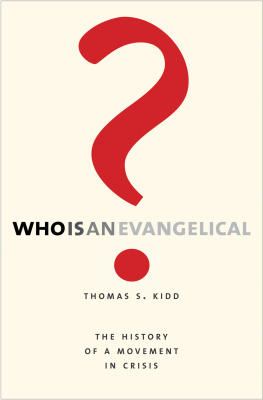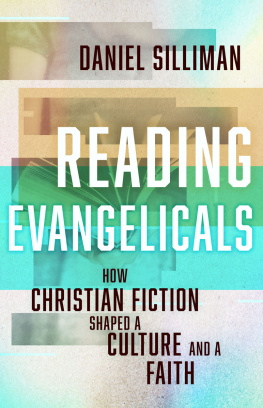Gods Businessmen
Gods Businessmen
Entrepreneurial Evangelicals in Depression and War
Sarah Ruth Hammond
Edited by Darren Dochuk
The University of Chicago Press
CHICAGO & LONDON
The University of Chicago Press, Chicago 60637
The University of Chicago Press, Ltd., London
2017 by The University of Chicago
All rights reserved. No part of this book may be used or reproduced in any manner whatsoever without written permission, except in the case of brief quotations in critical articles and reviews. For more information, contact the University of Chicago Press, 1427 E. 60th St., Chicago, IL 60637.
Published 2017
Printed in the United States of America
26 25 24 23 22 21 20 19 18 17 1 2 3 4 5
ISBN -13: 978-0-226-50977-8 (cloth)
ISBN -13: 978-0-226-50980-8 (e-book)
DOI : 10.7208/chicago/9780226509808.001.0001
Library of Congress Cataloging-in-Publication Data
Names: Hammond, Sarah Ruth, 19772011, author. | Dochuk, Darren, editor.
Title: Gods businessmen : entrepreneurial evangelicals in Depression and war / Sarah Ruth Hammond ; edited by Darren Dochuk.
Description: Chicago ; London : The University of Chicago Press, 2017. | Includes bibliographical references and index.
Identifiers: LCCN 2017009043 | ISBN 9780226509778 (cloth : alk. paper) | ISBN 9780226509808 (e-book)
Subjects: LCSH : BusinessReligious aspectsProtestant churches. | EvangelicalismEconomic aspectsUnited States. | CapitalismReligious aspectsProtestant churches. | LeTourneau, R. G. (Robert Gilmour), 18881969. | Taylor, Herbert John, 18931978. | EvangelicalismUnited StatesHistory20th century. | ChristianityUnited StatesHistory20th century. | United StatesHistory19331945.
Classification: LCC HF 5388 . H 36 2017 | DDC 338.092/8773dc23 LC record available at https://lccn.loc.gov/2017009043

This paper meets the requirements of ANSI/NISO Z 39.481992 (Permanence of Paper).
For Mary and Steve Hammond
Contents
Sarah Hammonds dissertation, completed at Yale University, has already influenced the field of American religious history. Specialists in the study of religion, politics, labor, and capitalism whose published works have appeared in recent years openly thank her for helping generate interest in this important topic, and for providing some of the impetus for the creation of a vibrant historiography. Were she still with us today, there is no doubt she would continue to be a vital presence in this ever-changing, always-important discussion about the relationship between faith and markets in the modern age. While experts are aware of her Yale study, many more students of twentieth-century US history need to be exposed to it, both because it is absolutely vital to our understanding of recent developments in the United States (epitomized by the election of a Presbyterian, Republican businessman to the presidency), and because it is a lively and enjoyableas well as illuminating and highly instructiveread. It is for this reason that the University of Chicago Press decided to move forward with the manuscript after Sarahs death (the book was under contract at that time). Having had the privilege of reviewing the manuscript for the press, and getting to know Sarah and her work, I agreed to help guide the project to completion. My fondness for Sarah and appreciation of her sharp intellect and talent with the pen only grew deeper as I processed her prose. She was and remains so special to so many people, and it was a privilege to spend time with her in this unique way.
The process itself involved a number of tasks, which, for the sake of transparency, deserve brief clarification, as well as my own expressions of gratitude. No electronic copy of Sarahs dissertation manuscript could be located, so the first task was simply to retype the text. Providing tremendous help in this regard was Debra Dochuk, who spent considerable time putting Sarahs words down on the page. Philip Byers helped finish typing footnotes and cleaning up the original draft. Both deserve a most emphatic thank-you!
Before she passed away, Sarah had outlined a series of responses to the initial round of editorial reports, which led to the University of Chicago Press extending her an advance contract. While editing, I did my best to honor Sarahs own plans for revision. This entailed rewriting the introduction and conclusion, adding a fifth chapter (culled from material that originally appeared in the dissertations four chapters), reorganizing the book into a chronological pattern, offering a bit more information on other evangelical executives, such as J. Howard Pew, and trimming, cross-checking, and updating the notes, Internet links included. In the process of reconstructing these sections, I also attempted to reference more recent historical work in the study of evangelicalism and capitalism, refit chapters (which tended to be quite lengthy) with section breaks and titles, and insert transitional sentences and paragraphs where I thought they were needed to promote consistency and flow. Sarahs ideas and voice remained front and center throughout, and I hope that the changes I made only serve to accentuate the brilliance of her insights and the playfulness and creativity of her style.
I would like to thank Mary and Steve Hammond for their encouragement and patience, for opening up their home for conversation, and for giving me access to Sarahs collection of archival materials. A hearty thank-you must also be extended to Timothy Mennel, who inherited this unusual project, and stayed with it, supportive throughout, even when challenges came along. I also appreciate the editorial help Rachel Kelly and George Roupe provided during the last stages of the process. I assume responsibility for any errors.
Darren Dochuk
I owe an immeasurable debt to the archivists who made my research possible. Bob Shuster and Wayne Weber at the Billy Graham Center Archives know every nook and cranny of American evangelicalism. Bobs habit of staying late for out-of-towners gave me at least ten extra hours with the materials. My hosts Julie and John Worthen fed me, gave rides when I could have taken the train, and filled the evenings with laughter, talk, and movies. At the Margaret Estes Library at LeTourneau University, Henry S. Whitlow went miles beyond the call of duty by lending me volumes of NOW. Dale Hardy, an archive unto himself, mobilized volunteers to catalog hundreds of disorganized boxes. His tour of the LeTourneau plant was a highlight of my visit, as was staying with Lee Wilkinson, a favorite childhood babysitter. The Hagley Library awarded me a grant in aid to spend two weeks with the papers of J. Howard Pew. Phil Wade at the Christian Mens Committee headquarters not only searched for but also scanned sources that fleshed out the stories of evangelical businessmens groups. I also thank the staff at the Library of Congress and the Franklin Delano Roosevelt Library.
I am deeply grateful to the organizations that helped fund my graduate school career. The Woodrow Wilson National Fellowship Foundation subsidized my first year with the Andrew F. Mellon Fellowship in Humanistic Studies. The Richard J. Franke Interdisciplinary Fellowship in the Humanities added three years of support. Most of all, the Lake Doctoral Dissertation Fellowship at the Center for the Study of Philanthropy at Indiana University enabled me to finish. Meeting the members of the Lake Institute board felt like being reintroduced to old friends. I thank them for their hospitality and their feedback on my research.









 This paper meets the requirements of ANSI/NISO Z 39.481992 (Permanence of Paper).
This paper meets the requirements of ANSI/NISO Z 39.481992 (Permanence of Paper).